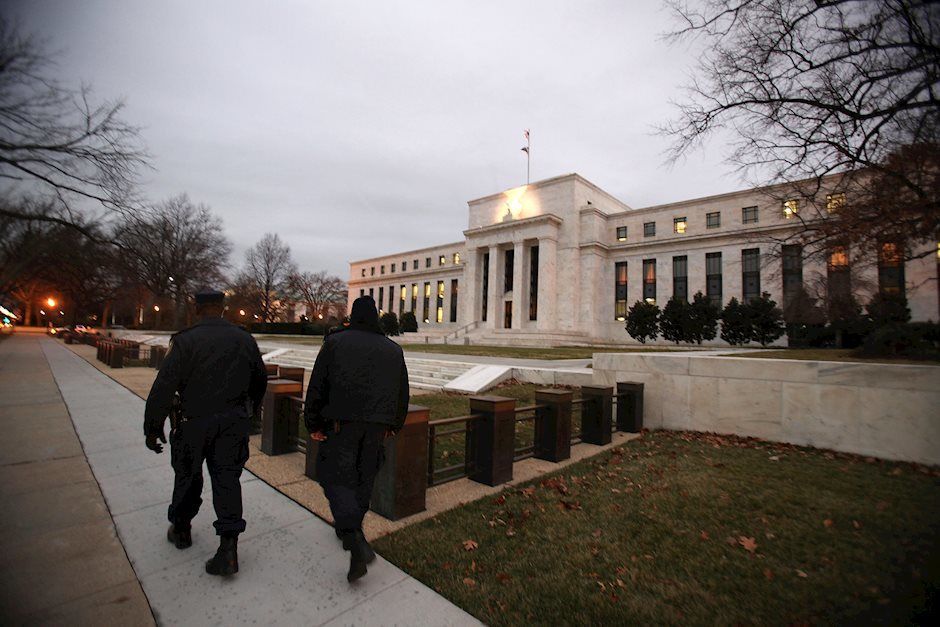The Federal budget deficit was back to normal in February

Thanks to record tax receipts, the January budget deficit was "only" $21.93 billion in January.
In February, government receipts fell back to normal. Spending was normal too - normally high. As a result, the February budget deficit was back to normal - massive.
The Biden administration ran a $296.28 billion budget shortfall last month, according to the latest Monthly Treasury Statement. With that, the fiscal 2024 budget deficit is knocking on the door of $1 trillion ($828.14 billion) with more than half a year to go.
The U.S. Treasury took in $271.13 billion in February. That was a slight increase from $262.11 billion in government receipts a year ago.
The big problem is on the spending side of the ledger. The federal government blew through $567.40 billion -- in one month!
In February the US spent $567.4BN and collected $271.1BN, resulting in a deficit of $296.34BN which was 110% bigger than all tax collections.
So far in fiscal 2024, the Biden administration has spent $2.12 trillion.
Spending is up 14.5 percent compared to the first five months of fiscal 2023. And this is despite the [pretend] spending cuts and promises from the Biden administration that it would save “hundreds of billions” with the debt ceiling deal (aka the [misnamed] Fiscal Responsibility Act.)
It just goes to show that no matter what you hear about spending cuts, the federal government always finds new reasons to spend more money.
These massive monthly budget shortfalls are pushing the national debt higher at a dizzying pace. On December 29, the national debt eclipsed $34 trillion for the first time. When Congress effectively eliminated the debt ceiling on June 5, the national debt stood at a "mere" $31.46 trillion. As of March 12, the national debt stood at $34.5 trillion.
According to the CBO, debt held by the public is projected to balloon from $26.2 trillion to $48.3 trillion by the end of 2034. That would represent 116 percent of GDP and would be the highest level on record.
High-Interest Rates are exacerbating the problem
These big budget deficits are happening during a time of sharply rising interest rates. This is a big problem for a government that primarily depends on borrowing to pay its bills, and it is likely one of the reasons that the Federal Reserve is talking about rate cuts even though inflation appears to be sticky. The borrow-and-spend U.S. government can’t function in a high interest-rate environment.
The U.S. government spent $76.16 billion on interest expenses alone in February. This was more than the amount spent on national defense ($65 billion) and more than Medicare ($73 billion).
The government has shelled out $443.37 billion on interest payments in fiscal 2024. The only category with higher spending was Social Security.
Net interest expense, excluding intragovernmental transfers to trust funds, was $350 billion through the first five months of the fiscal year, still nearly as much as the government spent on national defense ($363 billion).
And interest expenses will only continue to climb.
Much of the debt currently on the books was financed at very low rates before the Federal Reserve started its hiking cycle. Every month, some of that super-low-yielding paper matures and has to be replaced by bonds yielding much higher rates.
The weighted average interest rate on the government’s outstanding Treasury securities rose to 3.26 percent as of the end of February. That compares with a weighted average rate of 2.52 percent in February 2023.
Rising interest rates drove interest payments to over 35 percent as a percentage of total tax receipts in fiscal 2023. In other words, the government is already paying more than a third of the taxes it collects on interest expense.
And it's only going to get worse unless the Fed quickly ratchets down interest rates, as more and more Treasuries mature and are replaced by higher-yielding bonds.
The only way out of this fiscal death spiral is significant spending cuts and/or major tax hikes.
Good luck with that.
To receive free commentary and analysis on the gold and silver markets, click here to be added to the Money Metals news service.
Author

Mike Maharrey
Money Metals Exchange
Mike Maharrey is a journalist and market analyst for MoneyMetals.com with over a decade of experience in precious metals. He holds a BS in accounting from the University of Kentucky and a BA in journalism from the University of South Florida.


















